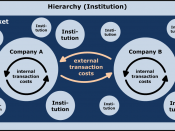Should Congress outlaw the use of "permanent replacements" During Strikes?
Advantages, Disadvantages and Alternatives to Public Sector Strikes
University of Maryland University College
Adelphi, Maryland
Strike replacement occurs when employers hire or use individual to perform the work of employees on strike. In the United States, it is not unfair labor practice for employers to replace the striking workers with others in effort to carry on the company's business. Most other industrialized nations, however, do not allow permanent strike replacement. The United States is already unique among its trading partners in allowing permanent strike replacements and ban on permanent strike replacement would probably raise labor costs and harm international competiveness. For decades, employers have been permitted to hire permanent replacements for striking employees, Congressional action may change this situation, and however, any legislative changes on this issue will most likely become a political hot potatoes for most member of congress or face a probable presidential veto.
(Budd, J.W) "But to maintain a balance of power between employees and employers, hiring permanent replacements is not allowed" and The United States Congress should outlaw the use of permanent replacement workers during strikes and I would argue the followings: workers investments, minimize strategic behavior, encouragement of collective bargaining, voice, Mackay doctrine, role of the law, employer has no real incentive to negotiate, Striker replacements, mandatory or permissive issue, What if negotiations fail and Italian model and Advantages, Disadvantages and Alternatives to Public Sector Strikes.
I assert that the key distinction that should be made in the law of striker replacements is one based on the degree of firmÃÂ specific investments made by the workers involved in the strike. By focusing on that feature, the law could prevent the use of a strike or the hiring of permanent replacements as an opportunistic...


